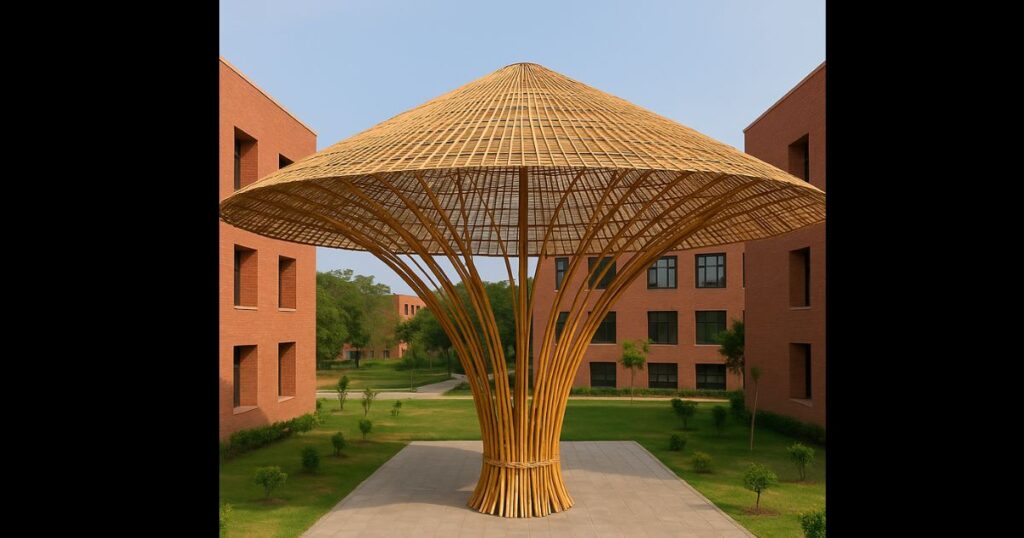A striking bamboo canopy at a Varanasi college reimagines the traditional chhatris—sunshades once common along the ghats of the Ganga. The installation not only pays homage to a fading craft but also opens a conversation about sustainability, heritage, and the future of urban design in India’s oldest living city.
A Disappearing Craft on the Ghats
For centuries, bamboo chhatris dotted the ghats of Varanasi, shielding pilgrims, vendors, and boatmen from the sun. Woven by skilled artisans, they were as much a part of the city’s visual identity as its steps and temples. Yet, as plastic and canvas alternatives spread, these handmade structures gradually disappeared. By the 21st century, their absence left not just a functional gap but also a loss of cultural memory. Conservationists have long lamented this erosion of traditional craft.
A Modern Interpretation on Campus
The new bamboo canopy at the Varanasi college draws inspiration from these vanished chhatris but scales them into a dramatic architectural form. Using locally sourced bamboo, the structure merges traditional weaving with modern engineering techniques. Its circular design creates a shaded gathering space for students, while its organic form echoes the ghats’ riverside heritage. Designers emphasize that the project is not merely nostalgic; it is a deliberate effort to champion sustainable materials and reinvigorate forgotten crafts within contemporary spaces.
Heritage, Sustainability, and the Future of Urban Spaces
The canopy has sparked discussions about how India’s cities can integrate tradition into modern infrastructure. At a time when climate resilience and sustainable building materials are gaining urgency, bamboo offers an alternative that is both eco-friendly and culturally rooted. Faculty members view the installation as a living lesson for students—a reminder that design is not just functional but also historical and symbolic. Architects suggest that such projects could serve as models for heritage-inspired urban planning, allowing cities like Varanasi to retain their identity while adapting to modern needs.


